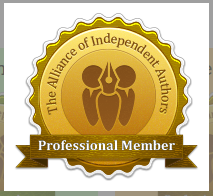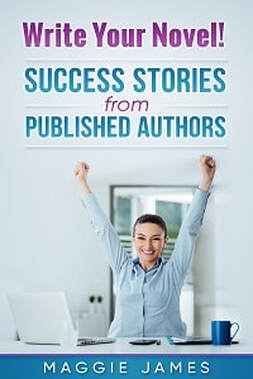 I still feel very much like a newbie when it comes to writing, even though I've been a full-time novelist for over five years, with seven published novels, a novella and a non-fiction book. I remember how I wanted to write a novel but hadn't a clue how to start. Part of my hesitation was down to not knowing any other novelists. If I'd had an example of success to inspire me, perhaps I'd have embarked on my writing adventure sooner. As it is, I'm always looking for ways to encourage would-be novelists. That's why I've compiled a free book as a companion to 'Write Your Novel! From Getting Started to First Draft'. This one is called 'Write Your Novel! Success Stories from Published Authors', and it's packed full of advice and inspiration. Contributors include British best-selling horror writer Iain Rob Wright and American novelist Robert Bidinotto. Read the stories in the book, absorb the wise words contained therein, and I hope you'll be inspired to continue your writing journey. The book is only available from this website and is available in kindle (.mobi), ePub and PDF formats via the image or the button below.
0 Comments
In this week's post, I want to share five books I've found helpful along my writing journey. They cover a range of topics from mindset to productivity, and I dip into them regularly. I hope you find them useful. To view each book on Amazon UK, click or tap the individual images. 1: Rachel Aaron - 2k to 10k: Writing Faster, Writing Better, and Writing More of What You Love
2: Libbie Hawker - Take Off Your Pants!: Outline Your Books for Faster, Better Writing
3: Jacqueline Garlick - The End: Edit Smarter Not Harder: Ten Simple Fix-Its Guaranteed To Strengthen Any Manuscript
4: Joanna Penn - How to Make a Living with Your Writing: Books, Blogging and More
5: Honoree Corder - Prosperity for Writers: A Writer's Guide to Creating Abundance
I hope you've found these suggestions useful! Are there any books you've found helpful in your writing journey? Leave a comment and let me know!
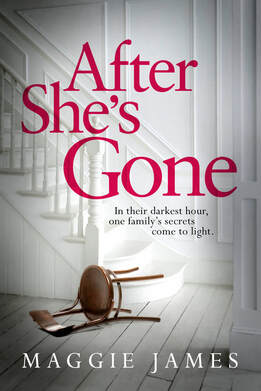 Something I remember after I finished the first draft of my fifth novel, 'After She's Gone' - how, along the way, something odd occurred. Many, if not all, other fiction writers report it's happened to them too; it's a concept that sounds a little off the wall, a bit wacky, at first. Readers who are not also writers tell me it's hard to understand, and I can see why. I'm talking about the tendency of fictional characters to resist doing what the author wants. Instead, just like real people, they often refuse to do what they're told, developing minds of their own and behaving in very contrary ways! Fiction writers will know what I mean. For others, though, this is a weird notion. 'But you're the author!' they say. 'Aren't you in control? Why not just make the characters do what you'd planned for them?' The answer is, I can't, not always. Let me explain. As a novelist, I’m an outliner, plotting my books in a fair amount of detail before I write them. As part of my planning, I prepare notes about each character - their motivations, their hopes, their issues, along with a physical description and a precis of their role in the plot. After I've done that, I tell myself I know them quite well, but the truth is, I don't. It's not until I start writing that they take on lives and minds of their own, and sometimes those minds decide to follow a different route through the novel. If this all sounds a bit woo-woo, it is and yet it isn't. In one way, there's nothing mystical about what I'm describing. However carefully an author plots in advance, it's impossible to foresee every eventuality, and it's not until the writing begins that a novelist finds out whether his/her story works. What may appear feasible at the planning stage can unravel once written; inconsistencies and contradictions appear or the plot simply doesn't feel right. The same happens with characters. I'll explain by using Jake Hamilton, a minor player in 'After She's Gone'. When I plotted the novel, Jake was a poor father, a lousy partner and an all-round deadbeat. As I wrote one particular scene, however, something didn't sit well with me. The storyline would work better, I decided, if I portrayed Jake as flawed in many ways, yet ultimately a man trying to do his best. Someone who regretted his past mistakes. So that's what I did. Nothing woo-woo about that, simply an author recognising that a different approach would suit the novel better. On the other hand, though, Jake asserting his true character provided a magical moment. It was as if he was shouting at me, trying to get my attention, yelling, 'Hey! You behind the keyboard! You've got me all wrong - I'm more of a nice guy than you give me credit for!' I hear you, Jake! And once I did, I changed my story accordingly. Characters don’t exist independently from an author's fiction, of course, however real they may become to a writer. The chances are, though, that if a character is pressing to go in a particular direction, then that's the best course for him/her to take. Here's novelist Dianne Doubtfire on the subject: 'Sometimes a character becomes so real that he refuses to do what you have planned for him. When this happens, don't coerce him; it means you have created a real person with a will of his own and this is a marvellous moment in any novelist's life. Hold him on a light rein, as it were, giving him his head to a certain degree but ensuring that he does not stampede you out of your story.' (Dianne Doubtfire, The Craft of Novel-Writing, published by Allison and Busby, 1978). Wise advice, Dianne - thank you! Oh, and a big thank you also to Jake Hamilton - I'm glad I listened to you! What do you think? Let's hear from you!Are you a fellow novelist who's had characters run out of control and do their own thing? Or are you a reader, someone who doesn't understand why authors can't exercise complete authority? Are there fictional characters who you think would have been more convincing if they'd been portrayed differently? Leave me a comment and let me know!
'After She's Gone' is available from Amazon in ebook, paperback and audio formats via this link: After She's Gone. How I edit my novels - from first draft to completed manuscript I've blogged before about different aspects of the writing process, including plotting and how I organise my working day. This week I'd like to focus on the editing cycle. As part of my contract with Lake Union, my first novel, 'His Kidnapper's Shoes', underwent revision prior to being republished by Amazon, and that proved a fascinating, as well as novel, experience! When I started my writing journey, I lacked the funds for a professional editor. (They don't come cheap!) Instead, I did the best I could myself. Now I'm with Lake Union, all that's changed, because Amazon pick up the costs. Until now, my editing process has gone as follows. First, I set the manuscript aside for at least a month, so that when I return to it, I do so with a fresh eye. My first drafts are rough, because I prefer to get the story out of my head first and worry about sorting the mess later. In the early stages, I spend a lot of time moving text around, deleting some parts and adding others. Once I have a coherent second draft, I check for correct spelling, punctuation, etc.; I'm a stickler for that sort of thing! I always run my books through Microsoft Word's spelling and grammar check as well, though. Another tool I use, and love, is Pro Writing Aid. There's a free version, but I use the premium one for its extra features, and have a lifetime subscription. Pro Writing Aid will tell me when I've used the same word too often in close proximity, check for clichés and redundancies, perform a grammar check, and much more. The next step is to tighten and prune my prose. It's scary how many unnecessary words I find! Often I shed several thousand during this stage. By the time I've done all this, the novel is, with any luck, slimmer and fitter. Scrivener helps every step of the way I also run each chapter through a checklist. Does it start with a bang? Will the ending lead the reader to the next chapter and create excitement? Have I included enough (but not too much) description and sensory details? Is the pacing right? I try to view it from a reader's point of view, which is hard for me, as I need to switch hats! At the end of all this, I read the manuscript several times to make sure it's as good as I can make it. This is hard because I can waste lots of time tweaking tiny details - at some stage I need to release the book to my wonderful beta readers! I have several people who provide feedback on what they like and don't like, what works and what doesn't. I implement most of their advice; it's rare for me to reject anything they say. After all, they come to the novel with a fresh eye, whereas by this stage I'm usually jaded! For me, editing is the longest part of the process, but unlike some writers, it's something I love doing. I find great satisfaction in polishing my first drafts (believe me, they really are rough!) into something better. I use Scrivener to organise every step of the way. Scrivener is software designed for writers, and has revolutionised my writing. If I could marry a piece of software, it would probably be this one! My experience with a professional editor 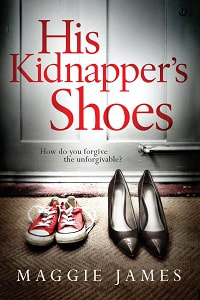 I'll continue to use this process I've outlined above, because it works well for me, but things worked differently for the two novels I've published with Lake Union. Here's how it's worked so far. Soon after I sent 'His Kidnapper's Shoes' to Sammia, my Amazon contact, she assigned Gillian Holmes as the book's editor. Gillian has over twenty years' experience in the industry and has worked with big names such as Kathy Reichs and Tony Parsons, so I was delighted! First she emailed me her overall impressions of the book and her main recommendations, along with my manuscript containing her detailed notes. Next Sammia organised a conference call between the three of us. She wanted to ensure I understood the process before I got stuck in, and I appreciated her thoughtfulness. I did wonder what Gillian might want to see changed in the book, not because I'm arrogant and consider it perfect, but because I'm too close to it to be objective. All her recommendations made sense and echoed some of the less favourable reviews I've received. She asked me to tone down the sex and swearing, and make Daniel Bateman a more likeable character. With that in mind, I set to work. I needed to learn Microsoft Word's 'track changes' feature but my inner geek enjoys stuff like that! It didn't take long to implement Gillian's recommendations. My experience of working with her has been very positive. Once I'd experienced the huge benefits of having a professional editor, I asked Gillian to edit my fiction titles that don't fall under my Amazon contract. I'm keen to make my novels as polished as possible, especially now I've joined the Alliance of Independent Authors, a professional writers' association. Any questions? I'm happy to answer any questions you have about how novelists (well, me - I can't answer for everyone) edit their books. Leave a comment and let me know!
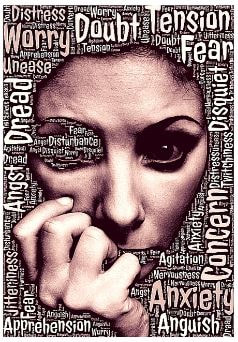 In this week's post I'd like to examine the stereotype of writers as tortured geniuses. It's a cliché, but one backed up by life. Examples of tormented authors abound; take Sylvia Plath, author of 'The Bell Jar', who was clinically depressed for most of her adult life and committed suicide in 1963. Or Ernest Hemingway, renowned for his hard drinking and womanising, who shot and killed himself. Jack London, Kurt Vonnegut, George Orwell - the list goes on, and it's a long and unhappy one. A recent study found that, with the exception of bipolar disorder, creative types are no more likely to suffer psychiatric problems than anyone else. Apart from writers, that is. We're more disposed, it seems, towards depression and schizophrenia. More prone to committing suicide, too. Here's the link to an NHS report on the study: Study looks at creativity link with mental illness. As someone interested in the workings of the brain, I find this fascinating, and frustrating that the study didn't identify possible reasons. I'm fortunate in that I've always enjoyed good mental health; I've blogged before about how I don't use my fiction as a catharsis for my demons, because those pesky little devils are few and far between. I'm aware, though, that other authors are different. Take my writing idol, Stephen King. I can't find the link, but I remember reading that he uses his fiction, especially his earlier works, to resolve childhood issues. He's also a writer who has battled alcoholism and drug addiction. In addition, at least one writer friend uses her books to resolve personal angst. I suspect certain genres lend themselves as avenues for exploring one's malaise. It's no coincidence that not many emotionally tortured writers have penned light romances or children's books. King's preference for writing horror and supernatural fiction is a great example. My own genre, psychological suspense, certainly lends itself to examining the darker side of life, but (thank God!) the events in my books have never featured in my own experience. If writing is cathartic, though, shouldn't authors be less, not more, prone to mental health issues? Or perhaps, for some people, it helps a little but their issues run deeper than fiction can heal. Who knows? My conviction is that our minds are far more complex than we can understand, at present anyway. And other creative professions, such as art and music, are by no means exempt - Van Gogh and Nick Drake, anyone? Take a recent study conducted by Help Musicians UK, which found that over 60% of musicians suffer some form of mental health issue. Such problems can affect anyone, at any age, whatever their profession. Despite what the survey found, I'm not sure they're linked to creativity. What do you think? Leave a comment and let me know! Now there's a question! 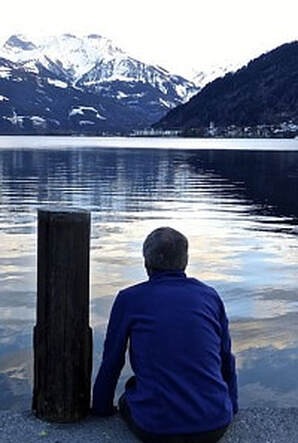 Being an author is one of the most solitary professions there is, as I know from experience. I work from home, keeping normal office hours, and unless I venture out at lunchtime, I don't see or talk to anyone until the evening. I'm not complaining. As a dyed-in-the-wool introvert, I've always needed plenty of solitude, and can get a bit stir-crazy if I'm surrounded by people for too long. Before I carry on, let me explode the most persistent myth about introverts: that we're shy people who dislike socialising. Not so! No way do I consider myself shy, because I'm not. Despite my strong need for solitude, I love spending time with my friends and meeting new people. Like other introverts, though, I prefer smaller social gatherings, and not to spend too long at them. Furthermore, loud noisy events or people don't sit well with me. Live music is my idea of torture and I prefer to socialise with fellow introverts. So how does one define an introvert? The word itself provides the clue; it originates from the Latin 'intro' (inwards) and 'vertere' (to turn). A great definition is this one from Psychology Today: 'Introverts are drained by social encounters and energised by solitary, often creative pursuits. Their disposition is frequently misconstrued as shyness, social phobia, or even avoidant personality disorder, but many introverts socialise easily; they just strongly prefer not to.' Part of this makes me cringe. For anyone to label introverts as having a personality disorder because they're not raving party animals is ridiculous. The perception persists, though, with some dictionaries defining the word as meaning 'shy person,' which neither tallies with its Latin roots nor with reality. As Psychology Today points out, introversion or extroversion has nothing to do with levels of confidence, shyness or social skills. Instead, it relates to how individuals respond to stimuli and replenish their energy. Extroverts thrive on hustle, bustle and social connections, whereas introverts find such situations draining. In contrast, we derive energy from within and by being alone. We're frequently misunderstood, though. Partly, I suspect, because we're in the minority. Estimates vary, but it seems between 25 - 33% of people fall in the introvert camp. As part of this misunderstanding, introverts can suffer pressure to socialise more by well-meaning friends, which can be very wearing. Some people have postulated that there's a distinct global bias towards extroverts; their traits are perceived as desirable, with job adverts requesting 'bright and bubbly' or 'outgoing' candidates. I think famous introverts such as Steve Wozniak, Bill Gates and Mark Zuckerberg prove we have much to contribute to the workplace! Other well-known introverts? How about Albert Einstein, Barack Obama, Stephen Spielberg, Isaac Newton, Abraham Lincoln, Warren Buffett or Frederick Chopin? One of the few professions that's carried out alone 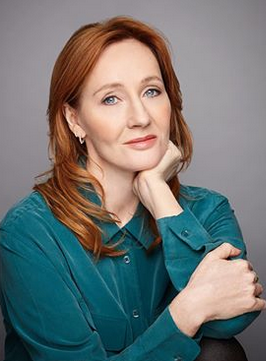 Novelist J K Rowling Novelist J K Rowling Let's examine how this relates to writing fiction. Whether novelists tend more towards introversion, I can't say, but a Google search on 'famous extrovert novelists' reveals nothing, with most of the search results concentrating on introverted writers instead. Many of my author friends regard themselves as introverts. Given that we need solitude, and creating novels being one of the few professions that's carried out alone, it does seem we may have an advantage. I imagine it would be torture for an extrovert to spend hours at a computer, cut off from human contact, whereas it's entirely natural for introverts. Any extrovert drawn to writing would probably thrive better as a journalist, perhaps. Or maybe they'd be attracted to other forms of creative expression instead, such as acting or the music business. Not all writers need solitude, of course. I know authors who write in coffee shops, libraries and pubs, places where the hum and bustle of daily life surrounds them. They're probably further along the scale towards extroversion than I am, that's all. Or perhaps they just get cabin fever more easily than I do. One consideration that acts in favour of introverts becoming novelists is the fact that, as Psychology Today says, we're often drawn to creative pursuits during our alone time. Famous introverted writers are plentiful; J K Rowling is said to be one, along with Emily Dickinson, Virginia Woolf, J D Salinger and the entire Brontë family. I'm in good company! Vive la différence! Each to their own...Both introverts and extroverts have their strengths and weaknesses, of course, and those strengths can be brought to the writing table. Introverts are often better listeners, and this skill enables them to find great true-life stories that provide great fodder for book ideas. Hand in hand with that goes an increased ability to understand human foibles and behaviour. I've often said on this blog how I'm fascinated by what drives our behaviour, especially when it encroaches into weird and wacky territory. All the time we spend alone gives us time to reflect, explore ourselves, skills we can use when creating our characters. Lastly, of course, we're better able to deal with long periods of solitude, a prerequisite of the writing life. But we don't hold all the cards. Extroverts meet a wider variety of people and engage more with them, thus providing material for characters and stories from a different angle, as well as from more plentiful sources. I suspect they're also far better at promoting themselves on social media. I love Facebook and Twitter as much as anyone, but don't post that often - it's simply not my style. Neither is better or worse, of course - people are what they are and a mix of extroverts and introverts makes for a more interesting world. I'd prefer the split to be more evenly balanced, but vive la différence, as they say! Over to you - what do you think? Do you think introverts are more suited than extroverts to the writing life? Are you an author yourself, and if so, in which camp do you consider yourself, or are you somewhere in between? If you're an introvert, have you experienced misunderstandings about what the word means? Extrovert authors, do you need to write somewhere public, so you get the stimulation you need? Leave a comment and let me know!
The fulfilment of a long-held dream 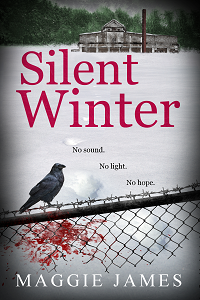 Five years ago, in December 2014, I wound up my dog walking business that had enabled me to write part-time, and became a full-time novelist. Delighted by the realisation of my most cherished ambition, I celebrated by touring Thailand and Cambodia for two months. (Those of you who know me well understand how badly I've been bitten by the travel bug!) When I returned, I settled down to my new life, and since then I've written a further three novels and my novella, 'Blackwater Lake'. The latest is 'Silent Winter', a dark story of how the mind responds to solitary confinement. I've enjoyed every minute. No regrets. None at all. So far I've written and had published seven novels, one novella and a 'how-to' guide for newbie writers. I've also collated three of my titles into a box set, and made them available in audio and paperback formats. Along the way I've signed publishing contracts with Lake Union, Bloodhound Books, and set up my own publishing imprint, Orelia Publishing. I've no plans to stop writing novels any time soon, or to switch genre. I love what I do, and meeting lots of other authors forms a big part of that. Many people have been very supportive What have I learned over the last five years? A lot about my fellow humans. I've made big changes, and this can be hard for other people to deal with. In general I've been overwhelmed by the support and encouragement I've received, including from other novelists, but some people have responded negatively. A few have chosen to ignore my new career, others have treated it as a joke - a nice hobby, perhaps, but not something to take seriously. That's a shame, but to be expected - some individuals feel threatened by other people's lifestyle changes. Such reactions have been greatly outweighed by the encouragement I've garnered elsewhere. I've also received wonderful support from unexpected sources, and that's been a pleasant surprise. Every book is a new challenge 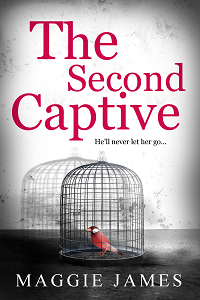 I've also learned a huge amount about writing. I've streamlined my processes, particularly plotting and editing, so they're much more efficient. As for book marketing and promotion, I'm still getting to grips with this area - it's not my natural forte! The geeky side of me has enjoyed setting up my blog and website, as well as getting the hang of the wonderful software that is Scrivener. I continue to learn more about my particular writing quirks. In common with other novelists, certain motifs often crop up in my fiction - for example, my characters tend to clench their guts a lot in tense situations. (Stay close to a toilet, guys!) I've noticed this with other writers' books; it can be a hard habit to break. I'm working on it... I'll continue to set myself a new challenge with every novel; so far it's proved both interesting and beneficial. For example, with 'The Second Captive' I explored writing in scenes and using a two-part novel structure. I'd been sceptical before about this, preferring to write in whole chapters, but I discovered I enjoyed that way of working. I'm delighted to report that book won the 'best novel' category in the 2015 Bards and Sages annual awards! With my next book, I want to plot more deeply than I've ever done before, and see how that affects the editing process. I don't doubt that I'll carry on developing and growing along my writing journey. It's been a fantastic five years, and I've never regretted my decision to pursue my novel-writing dreams. I shudder to think what I'd be doing now if I hadn't made that change. Life is about learning, growing and expanding, in my opinion, and I want to be doing that until I die. What do I want to achieve in the next five years? By 2024, I hope to have at least twelve published titles, and to continue combining writing with my perpetual wanderlust. I'd like to be able to produce my novels more quickly, but I get so hung up on the editing stage it doesn't seem to happen. So maybe I'll content myself with a book a year. Whatever happens, I'm buckling up for an incredible ride! Will you join me?
 Today marks the release of my seventh novel, 'Silent Winter', which makes me very happy! For the first week of publication, 'Silent Winter' is available for just 99c/p in the US/UK (Kindle version). Either click/tap the image or this link: Silent Winter. 'Silent Winter' is currently available as an e-book from Amazon, and the paperback version should be published within a day. I'm also working on an audio version, but that's a project for 2020. In the meantime, here's a taster of 'Silent Winter' is about: On an icy November night, Drew Blackmore is beaten unconscious, then abducted. He awakes to find himself in total darkness, naked and chained to the floor. Fed just enough to keep him alive, Drew is unable to identify his captor, or the reason for his incarceration. As reality fades, hallucinations take over. Can Drew escape his prison before madness claims him? Meanwhile Drew's wife, Holly, despairing of ever seeing him again, turns to his brother for comfort. As the worst winter in decades sweeps the UK, she learns of Drew's tragic past. Could his disappearance be connected with that of a prostitute years before? A story of how the mind responds to solitary confinement, 'Silent Winter' examines one man's desperate attempt to survive the unthinkable. A selection of comments from my ARC readers and from Goodreads reviews: 'Excellent storytelling from Maggie James.' 'Blew my mind away… the story kept me at the edge of my seat.' 'Great characters in a complex plot… an amazing read.' You can watch the video trailer here: Either click/tap the image or this link: Silent Winter. Buy your copy from Amazon via this link! Silent Winter
It's been a long haul so far... 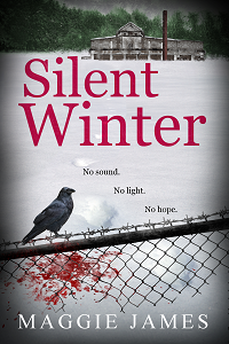 My forthcoming novel, 'Silent Winter', has enjoyed something of a tortuous journey to publication, and in many ways it's proved one of the more difficult of my books to bring to completion. I almost didn't write the story at all. The idea came from something I read about a medieval punishment, which was to incarcerate the wrongdoer in a sound-proofed, pitch-black room in solitary confinement. The prisoners were fed and given water, but denied all human contact. Sensory deprivation is harmful in prolonged doses and results in hallucinations and other unpleasant symptoms. Under such circumstances these individuals quickly lost their sanity, and from the research I did for 'Silent Winter', I'm not surprised. We are social creatures; even the most introverted people don't fare well in solitary confinement, and its use in prisons has been widely condemned. I wasn't sure whether I could handle such a distressing subject but the idea continued to intrigue me. I eventually decided to write a story based around the premise, but to keep it at novella length and offer the book as an opt-in incentive for my newsletter list. Lots of chopping and changing has been involved! I started to flesh out the plot in late 2017, so you can see how long the project has taken me! At first I planned to start the story with Drew released from his captivity, and to examine the complex emotions he would face as he tried to resume some kind of normality. I quickly realised that wouldn't work. For readers to empathise with Drew and the horrors he suffers, they have to endure them alongside him, albeit in written form (thank goodness!). That entailed adding a new front part to the book, which would bring it closer to novel length rather than a novella. With that in mind, I decided to write a full-length novel, still with the idea of offering it as an exclusive opt-in offer for my newsletter. And so I began. The plot posed problems, however. How was Drew going to escape incarceration? What would his former captor do to snatch him back? How would Drew overcome his nemesis? I wasn't happy with the first draft. The resolution of these issues relied too much on coincidence, and I shelved the book, frustrated at my lack of progress. However, I loathe wasting writing effort. There I was, with 70,000 words written of a project, and the subject matter still intrigued me. After a long break, I took another look at 'Silent Winter'. I stripped out everything that didn't work, axing tens of thousands of words in the process, and thought hard about what changes to make. From somewhere inside my head came the answers, along with ideas of how to forge some neat twists in the plot. I also decided to make 'Blackwater Lake' my opt-in offer, and that 'Silent Winter' would be available for sale alongside my other standalone novels. With that settled, I got to work. It took a lot of effort. I was revising the book amid moving home, and along the way I suffered a broken elbow, which put paid to any writing for a while. Gradually, out of the mess there'd once been, a new story took shape. Keen to get it published after so many false starts, I sent the manuscript to my long-suffering editor, who pointed out what still wasn't working and offered helpful suggestions. Back to the drawing board or, more accurately, my laptop... Eventually, at the end of August 2019, I felt confident enough to set a publication date of December 5, and for the book to be sent to my lovely beta readers at the end of September. The ARC version for bloggers and reviewers followed one month later. It's been a long haul getting to this stage, but I'm very pleased with how the novel has turned out, and so relieved that I didn't ditch it. Here are some of the lovely comments I've received from my ARC readers: Now available for pre-order at just 99c/p! 'Silent Winter' will be priced at 99c/p in the US/UK for the first week of sale, and if you pre-order the kindle version now you can lock in that bargain price. The paperback and audio versions will follow in due course. You can pre-order by clicking/tapping any of the graphics or via this link: Silent Winter. Thank you! In the meantime, here's a reminder of the story:
On an icy November night, Drew Blackmore is beaten unconscious, then abducted. He awakes to find himself in total darkness, naked and chained to the floor. Fed just enough to keep him alive, Drew is unable to identify his captor, or the reason for his incarceration. As reality fades, hallucinations take over. Can Drew escape his prison before madness claims him? Meanwhile Drew's wife, Holly, despairing of ever seeing him again, turns to his brother for comfort. As the worst winter in decades sweeps the UK, she learns of Drew's tragic past. Could his disappearance be connected with that of a prostitute years before? A story of how the mind responds to solitary confinement, 'Silent Winter' examines one man's desperate attempt to survive the unthinkable. 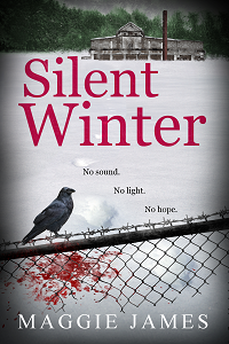 Just over four weeks until 'Silent Winter' is published - woo hoo! The novel is already available for pre-order in kindle format from Amazon, and I'm working on getting the paperback and audio versions ready. Meanwhile, I've had a short trailer made for the book, which you can watch here: Silent Winter trailer. Here's a taster of what the book is about: On an icy November night, Drew Blackmore is beaten unconscious, then abducted. He awakes to find himself in total darkness, naked and chained to the floor. Fed just enough to keep him alive, Drew is unable to identify his captor, or the reason for his incarceration. As reality fades, hallucinations take over. Can Drew escape his prison before madness claims him? Meanwhile Drew's wife, Holly, despairing of ever seeing him again, turns to his brother for comfort. As the worst winter in decades sweeps the UK, she learns of Drew's tragic past. Could his disappearance be connected with that of a prostitute years before? A story of how the mind responds to solitary confinement, 'Silent Winter' examines one man's desperate attempt to survive the unthinkable. You can pre-order the book here: Silent Winter pre-order. By pre-ordering, you lock in the introductory bargain price, which is 99c/99p for the kindle version. That's the price for the first week of publication, after which date the price will rise to $3.99/£2.99. The book will be delivered automatically to your kindle on December 5. Thank you! Watch the video trailer here!
|
Categories
All
Subscribe to my blog!
Via Goodreads
|
Join my Special Readers' group and receive a free copy of 'Blackwater Lake'!
|
Privacy policy Website terms and conditions of use
Copyright Maggie James 2018 - current date. All rights reserved.
Copyright Maggie James 2018 - current date. All rights reserved.
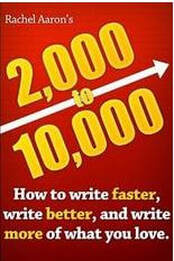
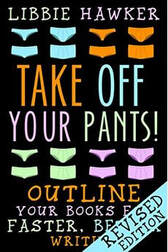
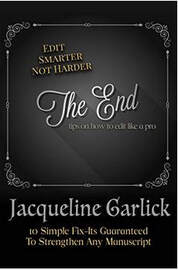
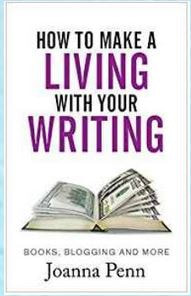
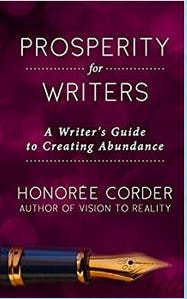
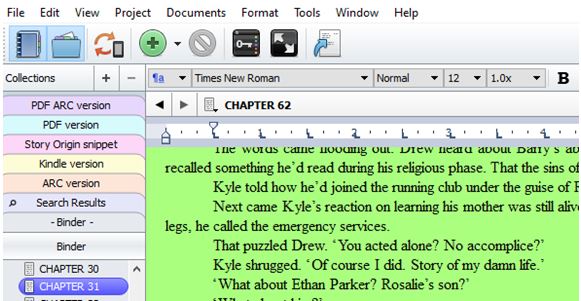
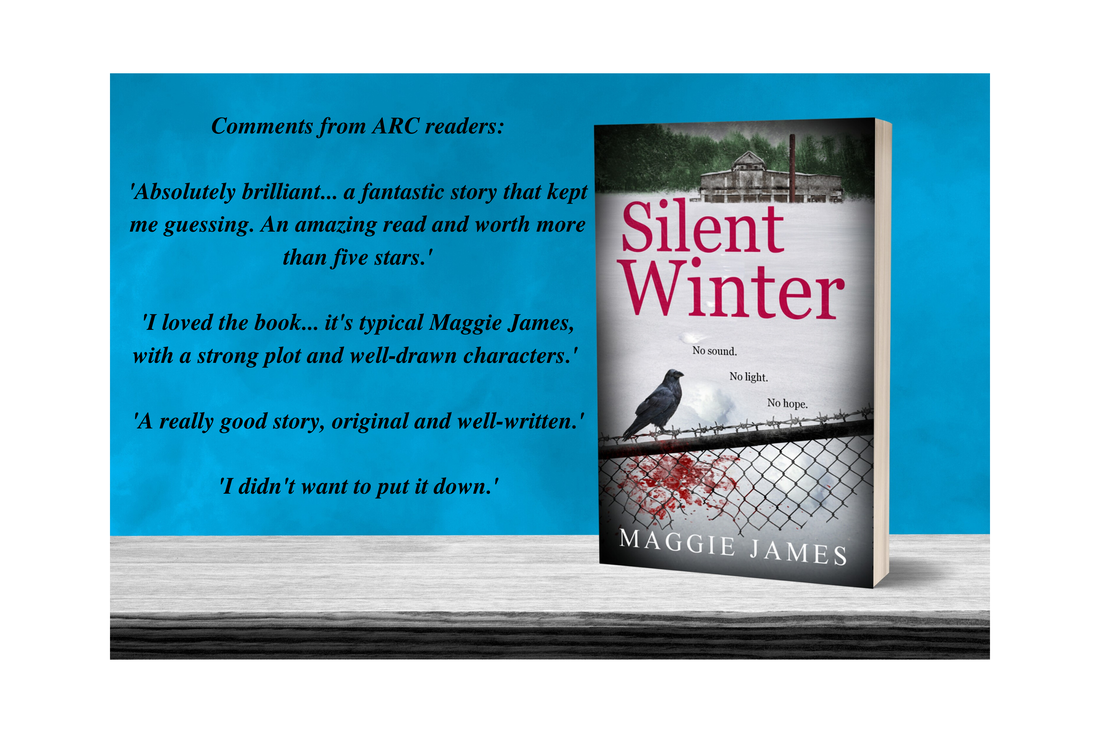
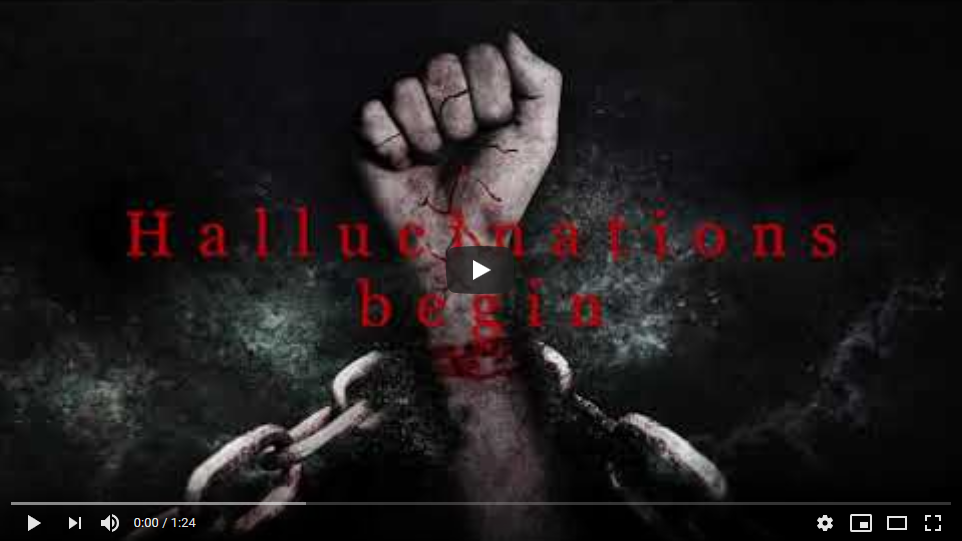
 RSS Feed
RSS Feed
